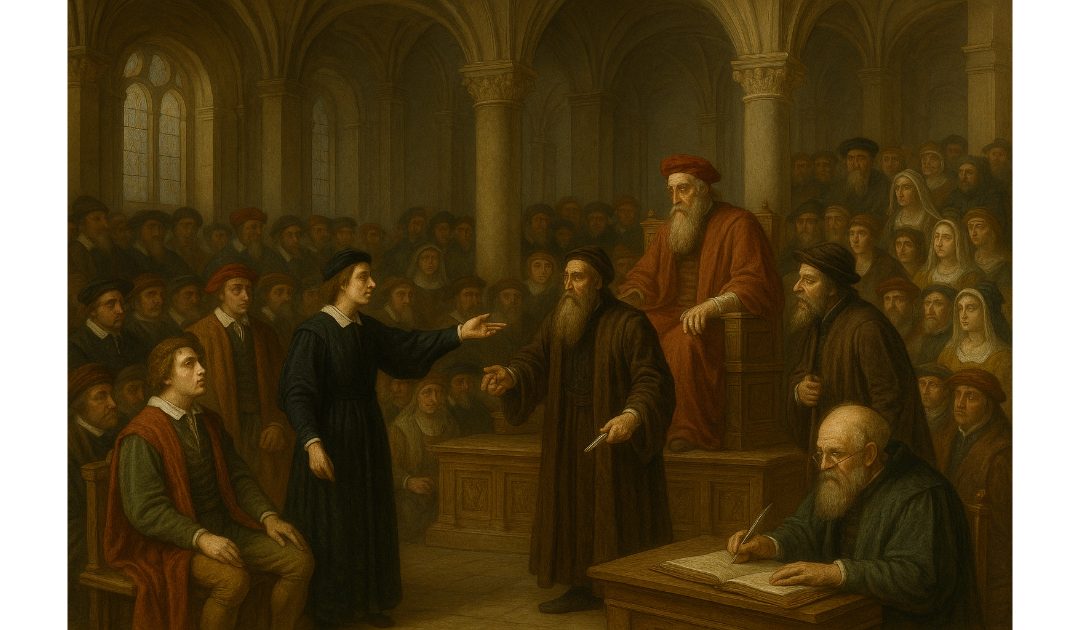On the 22nd of July, 1598, Shakespeare’s The Merchant of Venice was entered on the Stationers’ Register, which by decree of Queen Elizabeth I, licensed all printed works. The Merchant of Venice is my favourite Shakespeare Play. Whilst researching The Spy who Sank the Armada I discovered the story of Doctor Rodrigo Lopez, the inspiration, perhaps, for Shylock.
William Shakespeare’s The Merchant of Venice, believed to have been written between 1596 and 1599, is a complex play intertwining themes of mercy, justice, prejudice, and the dynamics of human relationships. Set primarily in Venice and Belmont, the narrative revolves around the merchant Antonio, his friend Bassanio, and the Jewish moneylender Shylock.
The central plot follows Bassanio’s desire to court the wealthy heiress Portia. To finance his pursuit, he seeks a loan from Antonio, who, having his wealth tied up in merchant ships, approaches Shylock for a loan of 3,000 ducats. Shylock agrees, but with a sinister condition: if Antonio defaults, Shylock will claim a pound of his flesh. This “merry bond” sets the stage for a dramatic exploration of contractual obligation and personal vendetta.
Shylock emerges as one of Shakespeare’s most compelling characters. He is both a villain and a victim, portrayed with depth and nuance. His infamous speech, “Hath not a Jew eyes?” challenges the audience to confront the humanity behind the stereotype, making Shylock a symbol of marginalisation and prejudice.
Scholarship links the character of Shylock to Doctor Rodrigo Lopez, a Portuguese-born Jewish physician who served Queen Elizabeth I. Lopez was accused of conspiring to poison the Queen, leading to his execution in 1594. Although the evidence against him was questionable, his trial was highly publicised, fuelling anti-Semitic sentiment in England. Lopez’s case may have influenced Shakespeare, providing a real-life backdrop for the creation of Shylock, whose characteristics—intelligence, sharp wit, and status as an outsider—resonate with what was known about Lopez.
The play’s courtroom scene is pivotal, where Portia, disguised as a male lawyer, defends Antonio. She famously appeals to Shylock’s sense of mercy, stating, “The quality of mercy is not strained.” However, Shylock insists on the letter of the law, leading to his downfall when Portia cleverly interprets the bond’s terms to deny him his claim without shedding blood. Stripped of his wealth and forced to convert to Christianity, Shylock’s fate evokes both condemnation and sympathy.
The Merchant of Venice straddles genres, blending elements of romantic comedy with dark, tragic undertones. The tension between Christian and Jewish characters reflects the religious and cultural prejudices of Elizabethan society. Yet, Shakespeare’s portrayal of Shylock transcends mere caricature, inviting audiences to grapple with complex moral and ethical questions.
The play’s enduring relevance lies in its exploration of justice, mercy, and the consequences of intolerance. While it reflects the biases of its time, it also challenges those prejudices, offering a multifaceted character in Shylock who defies simple categorisation. The possible inspiration from Rodrigo Lopez adds a layer of historical context, enriching our understanding of how real events can shape literary creation.
Ultimately, The Merchant of Venice is a testament to Shakespeare’s ability to capture the intricacies of human nature, making it a powerful and thought-provoking work that continues to resonate with audiences today.

